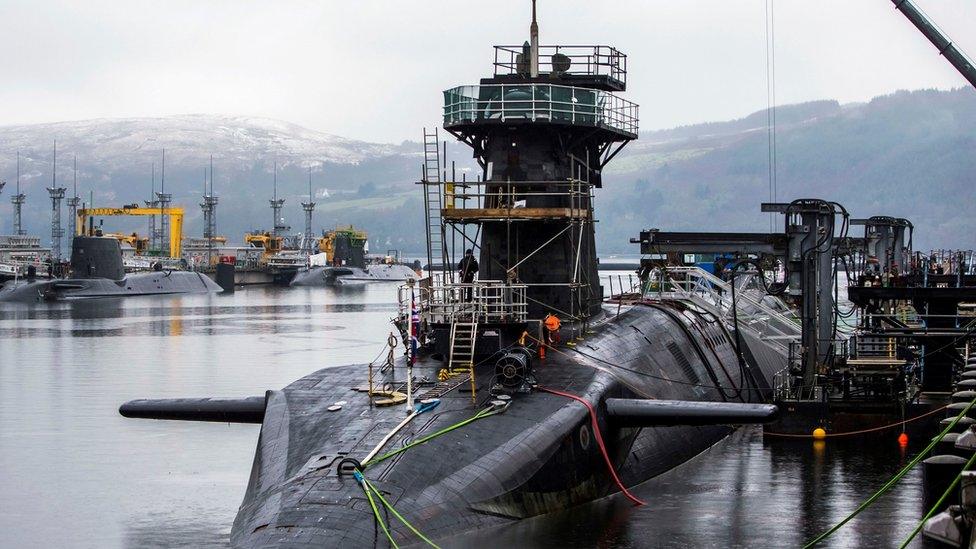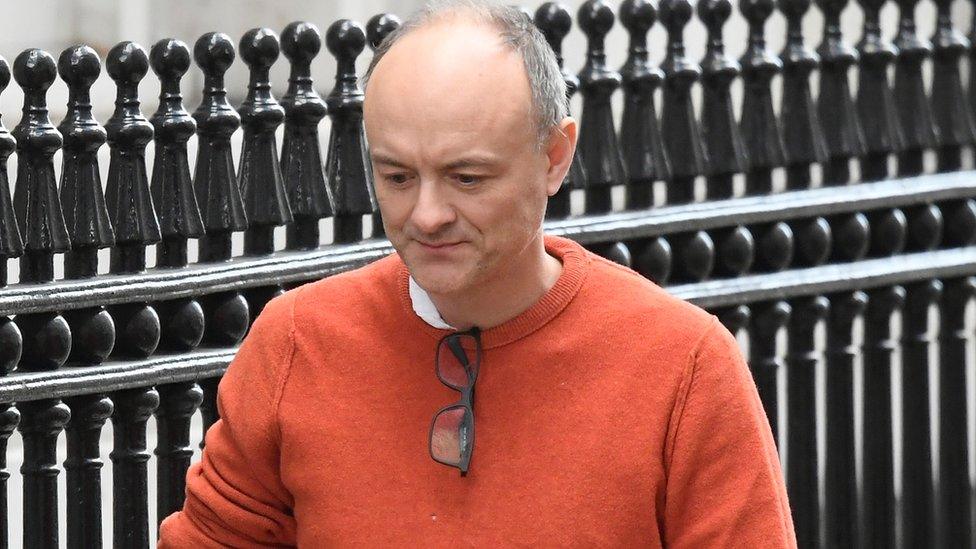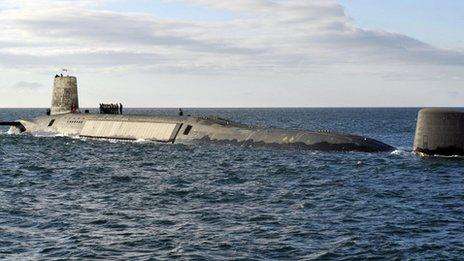UK nuclear weapons programme £1.3bn over budget
- Published
- comments

The Ministry Of Defence's "poor management" of Britain's nuclear weapons programme has led to rising costs and lengthy delays, according to the government spending watchdog.
The National Audit Office, external looked at three security sites in England, known as the Defence Nuclear Estate.
It found the infrastructure projects face delays of between one and six years, with costs increasing by £1.3bn.
The MoD said it would carefully look at the report's findings.
The projects, initially valued at £2.5bn, are being built to enhance or replace existing facilities at Barrow-in-Furness in Cumbria, where four new submarines are being built by BAE Systems to carry Trident missiles.
The other sites are Raynesway near Derby, where Rolls Royce is developing nuclear reactors to power the submarines, and at Burghfield in Berkshire, where the Atomic Weapons Establishment are assembling nuclear warheads.
Nearly half of the £1.3bn in increased costs are due to construction starting too early and then having to be revised, the NAO found.
The watchdog acknowledged there have been unique challenges, including the need to comply with stricter security and safety regulations for the nuclear industry, such as the construction of buildings able to withstand seismic activity.
But it said the MoD did not have the controls in place to overcome these barriers and prevent infrastructure designs from being over-specified and to ensure designs are "cost-effective".
'Monopolistic suppliers'
The NAO also criticised what it called "poor contracts", with the MoD taking all the risks and with the work being carried out by "monopolistic" suppliers.
BAE Systems earned an extra £10m in management fees following cost increases.
The company has no liability for costs and damages relating to non-performance. AWE also received additional fees when work was deferred.
The report said it was disappointing to see the MoD making similar mistakes to ones it made 30 years ago.
It says the department should not have allowed work to start too early and should have more control to agree to cost-effective designs.
In not doing so, the MoD's early management of the programme has "not delivered value for money", said the NAO.
Gareth Davies, the head of the NAO, said the "MoD's failure to mitigate commercial and delivery risks early on has led to project delays and cost increases as well as impacting its wider work".

Dominic Cummings, the prime minister's chief special adviser, has been a harsh critic of defence procurement
The spending watchdog did acknowledge oversight had recently improved.
But the criticisms will likely catch the attention of the prime minister's chief special adviser, Dominic Cummings, who wants to overhaul the way the MoD buys military equipment.
Mr Cummings, who has been a harsh critic of defence procurement, has already held talks with Defence Secretary Ben Wallace about ways of tackling waste.
Mr Wallace recently admitted there was a shortfall in the department's budget.
In a statement the Ministry of Defence said it was carefully examining the conclusions of the report but was committed to strengthening the management of its nuclear programme.
- Published23 May 2017

- Published30 September 2015